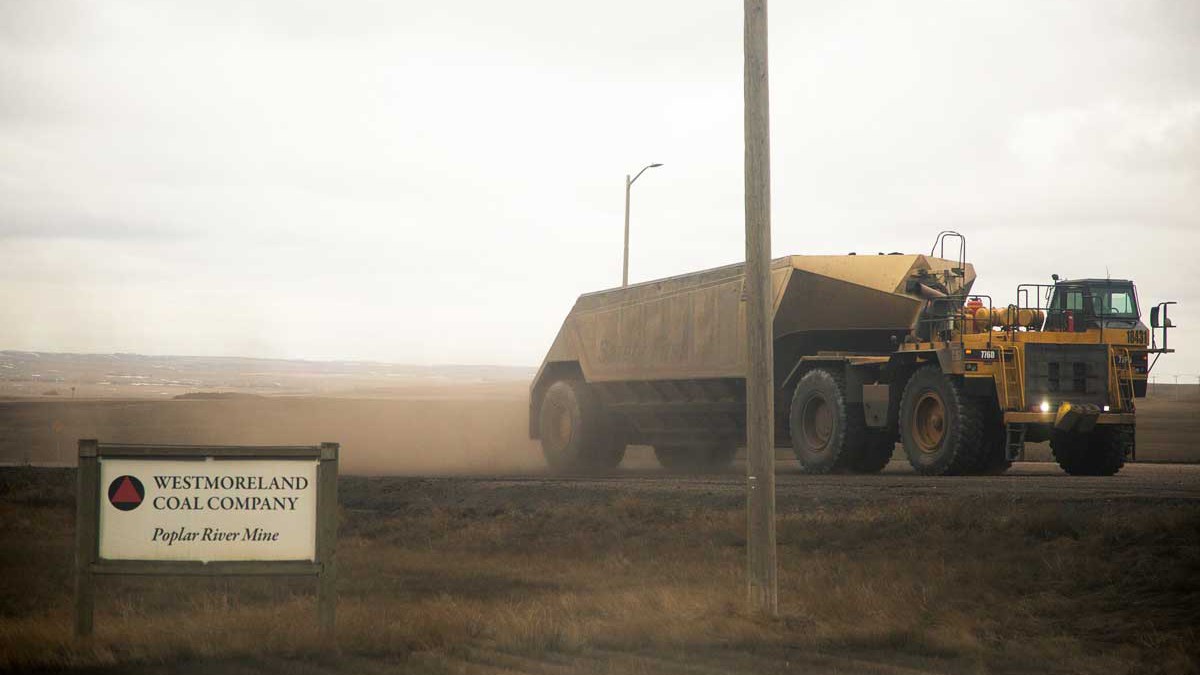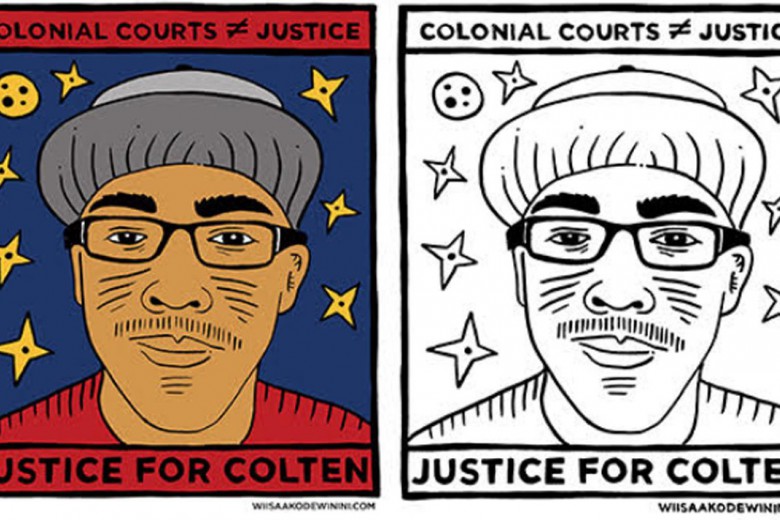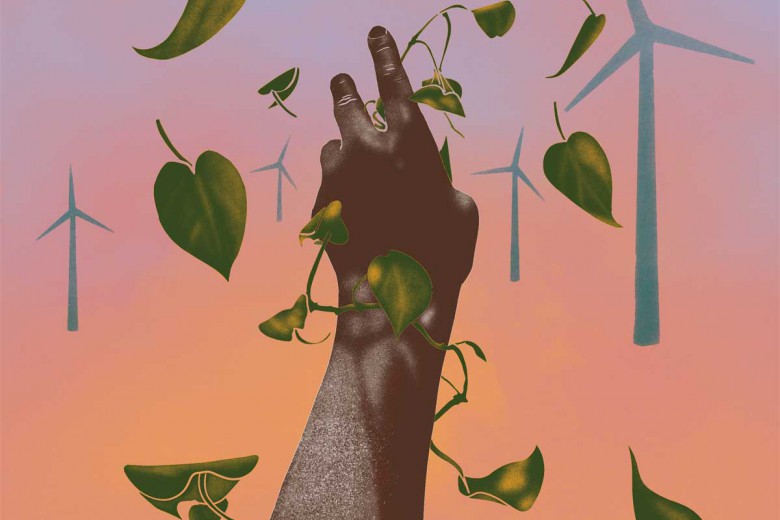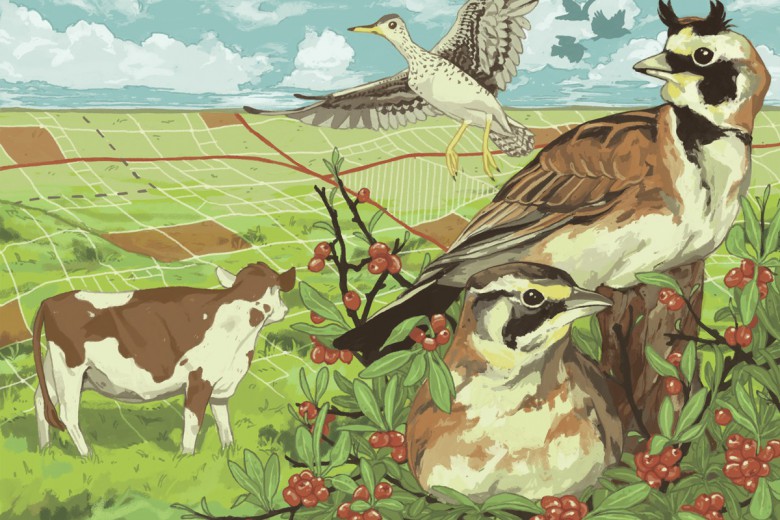Last spring, we – activists with Climate Justice Saskatoon – travelled to Estevan and Coronach, where the majority of Saskatchewan’s coal is produced. We interviewed 17 people at length – coal workers, service industry workers, union representatives, local administrators, and farmers, among others – and tried to make sense of what a just transition could mean for coal-producing communities.
We began this project – which culminated in a report called Bridging the Gap – because we think that engaging people in climate action requires more than just scientific and political education. It’s based on identities, values, emotions, and stories.
As of 2017, 40 per cent of Saskatchewan’s electricity still came from traditional coal-fired power plants. But the provincial government has finalized an agreement stipulating that companies would have to either add carbon capture and sequestration (CCS) technology to their coal plants or shut them down by 2030. The Saskatchewan government hasn’t put forward a clear strategy, though, for the future of coal and the communities it supports, like Estevan and Coronach. The uncertainty “just slowly spread,” one interviewee tells us. “You know, as if everybody became more aware of the date looming over.”
Phasing out coal is an obvious and necessary step toward slowing climate change. In 2017, coal accounted for 10 per cent of Canada’s electricity but was responsible for 77 per cent of electricity-related emissions. “Unfortunately, and essentially due to our lack of planning, a lot of livelihoods are also at stake,” says Justin Fisher, one of the Bridging the Gap project co-leads and a fact-checker for Briarpatch. “And we have an additional challenge of finding a way to support people and communities that are dependent on coal.”
“Unfortunately, and essentially due to our lack of planning, a lot of livelihoods are also at stake.”
Coal workers and other residents of coal-producing communities feel like their livelihoods are under attack by climate policies, and the feeling of being isolated or ignored by decision-makers can lead people to turn away from the political process. People are scared of a possible shortage of employment and economic opportunities, they’re looking for supports and services related to housing and health, and they’re skeptical about the practicality of renewable energy technology.
As one interviewee explains, “What gets me mad is everyone is fighting and it’s the working class – people that just want to live and just, you know, enjoy life, work, go on vacation – that those are the people that are getting affected, and it shouldn’t be like that.”
A story-based approach
When we listened to the stories of our interviewees, we weren’t looking for inaccuracies in their knowledge of climate change, renewable energy technology, or government policy. Instead, we wanted to understand what phasing out coal means to these communities. In Coronach and Estevan, coal represents stability, prosperity, and control over the future of the community.
Through the lens of storytelling, we began to understand that, after many decades of producing power for this province, coal-producing communities struggle with being recast as villains (“greenhouse gas emitters”) by those they see themselves to be serving (“power users”).
“This shift in public narrative helps to explain the uncomfortable emotions that emerged throughout interviews,” explains Hayley Carlson, another co-lead of the project, “such as fear about the future and resentment toward political and environmental leaders and [environmental] groups like ours.”
As is common in fossil fuel-dependent regions, we found that community members didn’t have opportunities to talk about climate change. And without understanding that climate change is a pressing local threat – not a far-off theoretical issue – a rapid phaseout of coal doesn’t make a lot of sense, economically or socially.
The uncertainty “just slowly spread,” one interviewee tells us. “You know, as if everybody became more aware of the date looming over.”
The project made us reflect on what “justice” or “fairness” means when it comes to a transition away from coal in Saskatchewan. Can we envision a future where people are able to live a good life with a lower salary? How can we engage in deeper conversations with our participants about decolonization and alternative economic models? These questions were outside the scope of the project, but as we continue to work with these communities, we will be grappling with how to talk about these dimensions of justice. We see it as part of our responsibility as settlers to engage with predominantly white communities about the need to prepare for the radical changes that a just transition demands.
Despite our differences, we were surprised to find that we, climate justice activists, did share some common ground with participants. We’re all fearful for the future, though for different reasons, and none of us think those fears are being taken seriously by decision-makers. We feel ignored by politicians and government representatives.
This project was about understanding the thinking in coal-producing regions and about figuring out how we can engage in conversations about a just transition through common terms of reference. For example, we noticed that private corporations appear to play a more meaningful role in coal-producing communities than public institutions, and participants are concerned that phasing out coal will exacerbate a lack of health services, unsafe roads, and the closing of more schools and grocery stores. Where anti-capitalist solutions would likely be viewed with skepticism, we are finding ways to talk about the impacts of austerity and privatization, and to suggest alternatives like public and co-operative energy ownership models.
For activists, building relationships with people who disagree with us has a built-in tension. It may not always be the right strategy for a volunteer group to spend time and resources engaging with those who oppose climate policies, but we saw an opportunity to connect with communities being left behind by decision-makers at a crucial policy moment, and we realized that if our stories, as climate justice activists, cannot contain or reflect their lived experience, we can’t expect them to care about our perspective. Ultimately, we learned that we can shape constructive conversations about phasing out coal without getting bogged down in “debating” climate change, even if climate change is foundational to our story.
As one participant told us, “I wish more people would take the time, and maybe through this study people will look at the other side of it. […] We just want to keep on keeping on down here, you know what I mean?” Our long-term goals are to support coal communities in building capacity for local-level solutions; help push for government accountability, transparency, and urgent action; and continue to advocate for a just transition away from fossil fuels.







